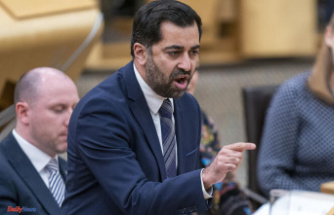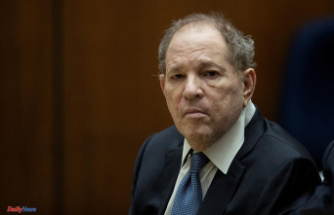Ricarda Lang's recent words on nuclear power can be interpreted in two ways - benevolently or biliously.
In good spirits, the story sounds as follows: With the Green leader's hint that circumstances could arise that would make it necessary to extend the life of nuclear power plants, a high-ranking Green politician, especially a left-wing one, showed herself pragmatic for the first time and finally she let ideology go.
It was hard to understand from the start that the Greens were calling in a threatening tone to save every kilowatt hour if possible in order to ward off Russia's gas war, while at the same time trying doggedly to end the debate on the lifespan of nuclear power plants.
Every rational person knows that by extending the running time, it would be possible, at least for a limited time, to replace the proportion of electricity that would otherwise use gas. But the Greens think differently.
One increasingly gets the impression that the crisis is being used as a pretext to use reference to the war to restructure society more quickly in the way they had planned anyway.
In many areas of politics, the Greens have moved for the good of the country, but also for their own benefit, only nuclear energy is still taboo today.
If the leftist Ricarda Lang managed to win over her own party in this special situation for a temporary exception, the party would be fully eligible for chancellorship, and Lang would be the most important leader of the Greens alongside Robert Habeck and Annalena Baerbock.
However, Lang could also have made her move for purely party-political reasons: The Greens are afraid of autumn and the possibility that a freezing nation will blame Economics Minister Robert Habeck alone for the cold.
The opposition is already working on assigning the blame for the impending evil to the green poll darling. In this situation, the party leader must do everything to avoid even the slightest suspicion of ideological bias.
At the very least, it must appear as if all the options for generating energy had been tested without prejudice. The question remains: is the little light that Lang lit one of hope or just one that attracts mosquitoes in the dark?












